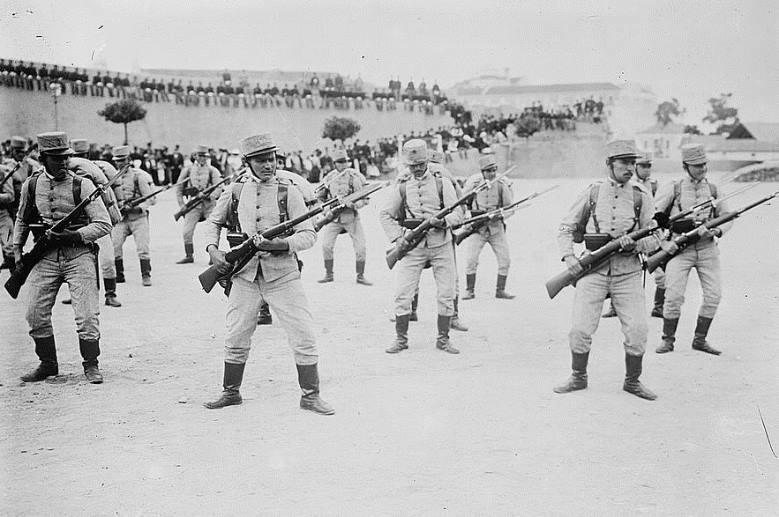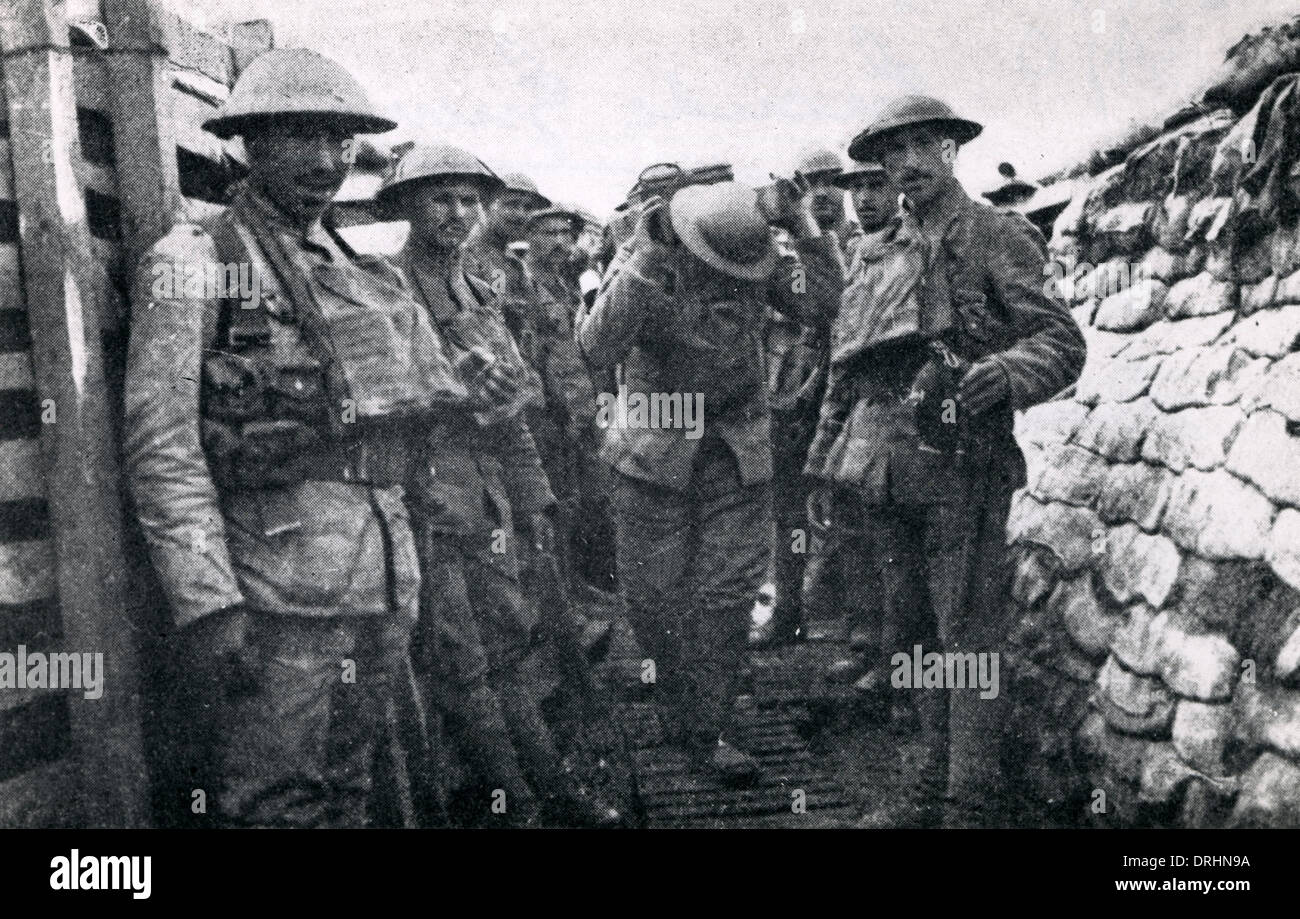Portugal: the forgotten ally
It is an injustice of history that Portugal's role in WWI has been forgotten. Not only are the sacrifices of thousands of Portuguese lost to the mists of history, the extent of the British role in the dire socio-economic consequence of the war has been similarly forgotten.
Britain´s 1890 ultimatum of either giving up the dream of a trans-African empire linking Angola and Mozambique or facing war with Britain led to the downfall of the Portuguese monarchy. In 1914 the fledgeling Republic had no choice but to fight to hold on to her African empire. At the Congress of Berlin in 1884, Portugal was required to occupy her African colonies or they would be lost. Further indignity followed when British ships threatened Portugal and her African colonies to accept the 1890 ultimatum. Against a background of European powers scrambling for the African cake, Portugal was rightly suspicious of the threat to her empire. By the date of Germany's Weltpolitik, or world policy in 1890, much of the continent had already been partitioned and only areas of little economic value were unclaimed. Therefore, the German appetite for colonialism could only be satiated at the cost of other nations' possessions. Britain and Germany right up to the outbreak of war were on the verge of negotiating how they would share Belgian and Portuguese colonial possessions.
 |
| Portugal's African colonies |
Consequently, a new, unstable Portuguese Republic, following the 1910 revolution, was battling to keep internal control due to war in Europe, a pro-monarchical Spain looking for a united Iberia and the defence of colonies thousands of miles away. In this dark situation, Portugal could not rely on her oldest ally, Britain. Cynically, with the end of the Portuguese monarchy, Britain declared that the clauses of the old treaties were obsolete and that neither the Portuguese Army, nor Treasury, had any effective war value. And, strategically, ´if Britain had to choose between the friendship of Portugal and the friendship of Spain, that of Spain is of the greater value.´ (British Admiralty War Staff memo).
Portugaul was forced into the war when on 24 August 1914, German troops attacked Maziua in Portuguese East Africa, killing the commanding officer and a dozen Portuguese local troops. The German government made an official apology but there was outrage in Portugal. Particularly as more German troops were brought to the Mozambique border in case of reprisals. In Portuguese West Africa, the Germans attacked a frontier post in late October and in December there was a full scale battle inside Portuguese territory at Naulila.
To defend against these incusrions, the first Portuguese Expeditionary force of 1500 troops arrived in Mozambique on 1 November 1914. They were badly trained and badly equipped and following a long sea voyage they arrived in Porto Amelia to a cyclone-damaged port that had not been repaired. Furthermore, the expedition´s commander, Lieutenant-Colonel Massano de Amorim, did not received any military commands until the overthrow of General Pimenta de Castro´s government in May 1915 when he was told to invade the German held Kionga triangle to the north of Porto Amelia and to reinforce the 600 mile northern border of the colony. Having lost 20% of his troops to disease, Amorim needed more support. In November 1915 a further 1500 Portuguese troops arrived under the command of a political appointee with no military experience, Major Moura Mendes. An added difficulty was that orders from the fifth government of the year in Lisbon, was directed through the colony´s new Governor General, Álvaro de Castro, who was 1000 miles away in the colony´s capital, Lourenço Marques. It was not suprise that the Germans did not take the Portuguese seriously and they continued to operate in northern Mozambique.
The situation worsened from a localised conflict to an official war as Germany´s continued strategic use of Mozambique, led the British to demand that Portugal seize all German ships sheltering in neutral Portuguese harbours. Portugal agreed in return for a loan. Germany reciprocated by declaring war on Portugal on 9 March 1916.
On 10 April 1916, the 215 square miles known as the Kionga Triangle that had been a bone of contention between Portugal and Germany for 2 decades was captured by the Portuguese. The Governor General, flushed with this success took command to prepare to clear the north bank of the Rovuma delta of German troops. They failed miserably despite an overwhelming superiority of numbers at what was known as the battle of Namiranga. Meanwhile, a Third Expeditionary Force under the command of General Ferreira Gil set off from Lisbon with a new set of grandiose plans for advancing to the Makonde Plateau in German territory. The plan failed when Gil, believing he was surrounded by a larger force, decided to retreat leaving all their equipment and supplies behind - much to the delight of the Germans. The ´spin´in Lisbon turned the ignoble retreat into a battle that ´assumed a major importance for the nation in order to save its colonies´.
 |
| Portuguese troops occupy the Kiogna Triangle |
1917 proved to be a disastrous year for the Portuguese with local tribes revolting against the increasingly harsh Portuguese rule. The rebellions were forcefully suppressed for fear of losing the colonies if they couldn't´t control them. In fact the Germans saw themselves as the natural inheritors of Africa in which their drive westwards to German West Africa and Angola. In November the Portuguese were overrun at Negomano leaving the grateful Germans with yet another gift of a quarter of a million rounds of ammunition and several hundred modern rifles. The British and the Portuguese fought together at Nhamacurra and they then had to fall back to Quelimane where the proximity of German troops caused the locals to rebel. Sousa Rosa was sacked and Portugal´s campaign in East Africa was over.
A decision to send 55.000 Portuguese troops to fight on the Western Front caused a further political crisis. Strikes broke out all across the country and martial law was imposed. The União Sagrada government fell and the hand of the anti-war lobbies and anti-British lobbies was strengthened. However, no Portuguese government was willing to abandon the fight in either Europe or Africa as it would be an admission of failure that would further damage Portugal´s national pride. In the anti war spirit, the new President, Sidónio Pais, allowed his officers to abandon their troops in France and it was left to the British and French to lead a dispirited Portuguese force. This Portuguese presence on the Western front is under acknowledged, at its peak, the expeditionary force held twice as much territory as the American contingent later did.
 |
| Portuguese soldiers on the Western Front |
In total, Portugal mobilised 89.000 combatants: 7989 were killed. Portugal was in no position politically to go to war in 1914 and by 1918 she was on the verge of collapse. Britain had been deceitful in her attitude towards Portugal before the war, but had fought alongside her in Africa: effectively ensuring that indigenous revolts were put down in to further British war aims. Following the war, Portugal suffered shortages of coal, matches, fish, meat, flour oil, milk, rice, beans, sugar, butter. Britain cut off her credit and inflation from January 1918 to January 1920 reached 440%. Emigration from the country between 1918 to 1920, mostly to Brazil, was in the order of 65.000 per annum. Portugal got a seat at the Treaty of Versailles - albeit a back one. One Portuguese delegate said to Clemenceau, Portugal was owed something for ´its unforgettable services to Humanity and Civilisation above all in Africa, which it has watered with its blood since the 14th century´. In terms of reparations, Portugal got nothing. She kept her colonies, gaining the Kionga Triangle - the Peacemakers In Versailles felt this was enough. This represents a gross negligence on the part of the British in WWI and one that is not remembered today, wither in history books or in the public consciousness.
Comments
Post a Comment